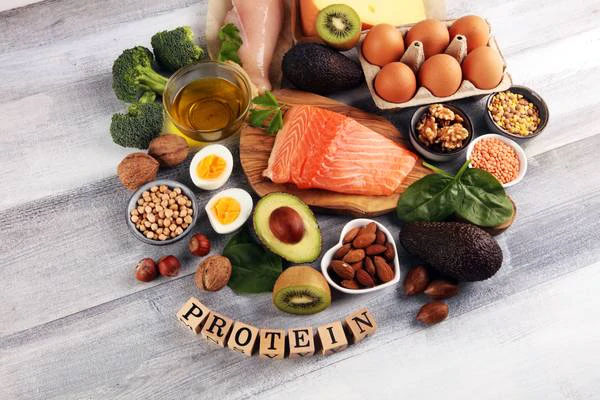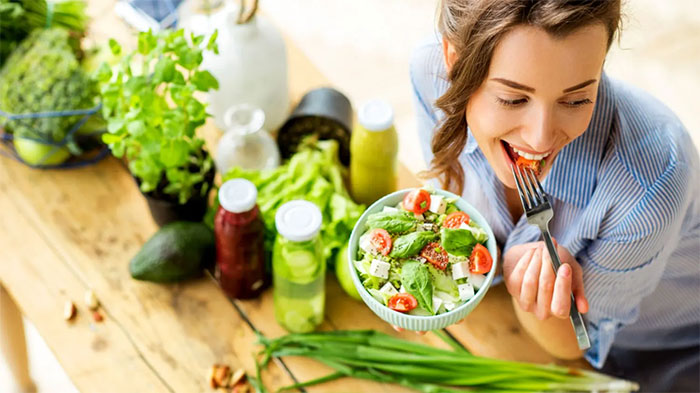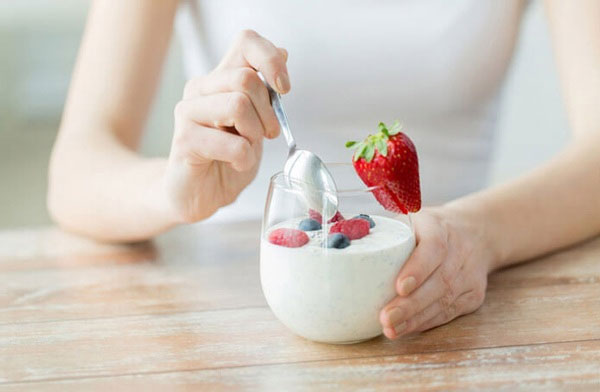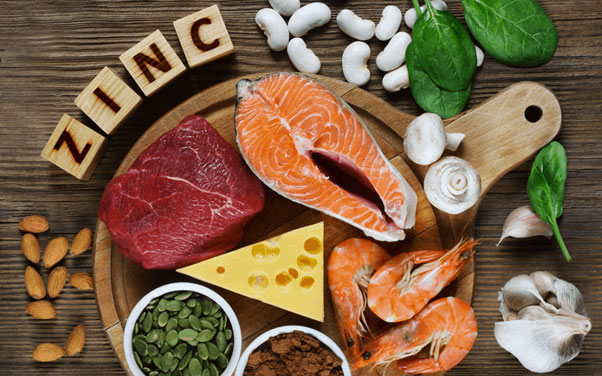In recent days, the number of new Covid-19 cases has continuously increased across the country. In addition to home treatment, individuals with Covid-19 (F0) need a proper nutrition plan to recover quickly.
Dietary Guidelines for Covid-19 Patients to Recover Quickly
- 1. High-Protein Diet
- 2. Incorporate Healthy Fats
- 3. Consume Plenty of Fruits and Vegetables
- 4. Include Probiotics
- 5. Vitamin C – The “Super Warrior”
- 6. Boost Zinc-Rich Foods
- 7. Don’t Forget Selenium-Rich Foods
- 8. Stay Hydrated
- 9. Enhance Immunity with Familiar Herbs
- 10. How Should Children with Covid Eat?
Covid-19 can cause more severe symptoms in individuals with weakened immune systems, the elderly, and those with chronic diseases such as diabetes, cancer, chronic obstructive pulmonary disease, and cardiovascular diseases.
Proper nutrition and adequate hydration are essential to address this illness and help manage symptoms. A balanced diet can optimize immune system function, improve metabolism, and may help prevent the development of chronic symptoms related to Covid-19.
It is advisable to adhere to a diet rich in fresh and unprocessed foods daily to provide the body with the necessary vitamins, minerals, fiber, protein, and antioxidants. A suitable diet will ensure that the body is in the right condition to combat the virus.
Some changes in your daily habits can aid in recovery, including:
1. High-Protein Diet
Patients with Covid-19 need to consume adequate protein to prevent muscle loss and maintain metabolic functions. Muscle loss can lead to weakness, fatigue, and an inability to perform daily activities. Protein deficiency is also associated with impaired immune function and may worsen symptoms, resulting in prolonged recovery times.

Patients with Covid-19 need to consume adequate protein to prevent muscle loss.
Try to include a serving of protein-rich foods in each meal. Vegetarians can incorporate 2-3 servings a day of beans, soy, dairy products, nuts, and seeds. Non-vegetarians can include all of these along with lean meats such as eggs, chicken, and fish in their diet.
2. Incorporate Healthy Fats
Reduce excessive fat intake and choose cooking methods that require little or no fat, such as steaming, baking, or sautéing instead of frying foods. Opt for foods containing healthy unsaturated fats, such as fish and nuts.
To limit saturated fats, cut down on excess fat from meat and poultry and choose skinless options. Reduce consumption of foods such as red meat and fatty meats, butter, full-fat dairy products, palm oil, and lard. Avoid consuming trans fats in your meals as much as possible.
3. Consume Plenty of Fruits and Vegetables

Try to include at least 5-6 servings of fruits and vegetables in your daily meals.
Vitamins, minerals, and antioxidants found in colorful fruits and vegetables aid in quick recovery. Aim to include at least 5-6 servings of fruits and vegetables in your daily meals. You can add fruits to your shakes or smoothies and consume seasonal vegetables in forms such as cooked, sautéed, steamed, or boiled.
4. Include Probiotics

Probiotics support the growth of good bacteria.
Recent studies show that probiotics can help boost the immune system. The healthy bacteria found in probiotics will help the gut and intestines fight against harmful microbes. Yogurt, kefir, sauerkraut, kimchi, and kombucha are rich in probiotics.
Probiotics support the growth of beneficial bacteria, playing an essential role in balancing the good bacteria levels in your body, which are stored in the gut. These healthy bacteria help balance your digestion, immunity, and metabolism.
5. Vitamin C – The “Super Warrior”
Vitamin C protects you from infections by stimulating the formation of antibodies and enhancing immunity. As an antioxidant, vitamin C combats free radicals present in the body.
Increase your intake of vitamin C through citrus fruits like oranges, grapefruits, and tangerines, or red bell peppers, papayas, strawberries, tomatoes, guavas, broccoli, and chili peppers.
6. Boost Zinc-Rich Foods

Zinc can be found in lean meats, poultry, seafood, and dairy…
Ensuring adequate zinc intake is crucial for the development and function of the immune system and can aid in wound healing. Zinc can be found in lean meats, poultry, seafood, dairy products, whole grains, beans, and nuts.
7. Don’t Forget Selenium-Rich Foods
Eggs contain selenium, a powerful antioxidant that plays a vital role in cellular health. Other sources include seafood, Brazil nuts, pumpkin seeds, grains, and dairy products.
8. Stay Hydrated
Maintaining adequate hydration with water and fluids is crucial, even if you do not feel thirsty, to compensate for lost fluids and to thin respiratory secretions. If respiratory secretions are not thinned, it can lead to pneumonia. Sip water regularly, and you can also try flavored water with fruits, mint, or lemon for better taste.
Add diluted fruit juices, clear soups, broths, smoothies to meet calorie and hydration needs. Avoid excessive consumption of tea/coffee as caffeine tends to increase heart rate and cause dehydration.
9. Enhance Immunity with Familiar Herbs
Many herbs and spices can be used during this time due to their anti-inflammatory, antioxidant, and antiviral properties.
Spices such as cloves, cinnamon, dried ginger, and black pepper can boost immunity.
Turmeric milk with black pepper is recommended due to its anti-inflammatory and immune-boosting properties.
Herbs such as mint and basil can be made into tea to provide antioxidants, improve taste, digestion, and immunity.
Proper nutrition is crucial for health, especially during times when the immune system needs more energy. Limited access to fresh foods can impact our efforts to maintain a healthy and diverse diet.
Remember that the aforementioned tips and dietary plans are not a cure or remedy for illness, but a way to enhance your immune system to help combat infections.
10. How Should Children with Covid Eat?
Children with Covid-19 (F0) need to eat a variety of foods and drink enough water; meals can be divided into smaller portions or supplemented with 1-2 snacks of milk.
Dr. Lưu Thị Mỹ Thục, Head of the Nutrition Department at the Central Pediatric Hospital, states that the number of children infected with Covid-19 is rising. To limit severe and critical developments, children need to be closely monitored and have a complete nutrition plan. Proper nutrition helps children boost their resistance, recover quickly, prevent the body from becoming weakened, leading to malnutrition and limiting severe post-Covid-19 complications.
For children with Covid-19 being treated at home, parents should regularly monitor their weight and the amount of food they consume to see if there is a decrease compared to before and the extent of that decrease. Daily, children must eat a variety of food groups, at least 5 out of 8 food groups, which are: carbohydrates, dairy and dairy products, fats, vegetables, meat and fish, eggs, nuts, and dark green-yellow vegetables.
To date, there is no conclusion on any specific food that can kill the virus, especially those with high alkalinity, so, according to doctors, a diverse diet is necessary. Vitamins C and E enhance the immune system and are abundant in fresh fruits such as grapefruit, oranges, and kiwi. Eating broccoli and leafy greens provides flavonoids, which are antioxidants.
Monitor the child’s weight every 3-5 days. If the child loses 1-2% of weight per week, and food intake drops below 70% of normal for three consecutive days, inform healthcare staff for appropriate guidance. Ensure the child drinks enough water and shows no signs of dehydration such as dry lips and tongue, infrequent urination, or dark-colored urine. If the child has a poor appetite due to fever, cough, fatigue, or nasal congestion, consider smaller meals or supplementing with 1-2 snacks of dairy products.


















































